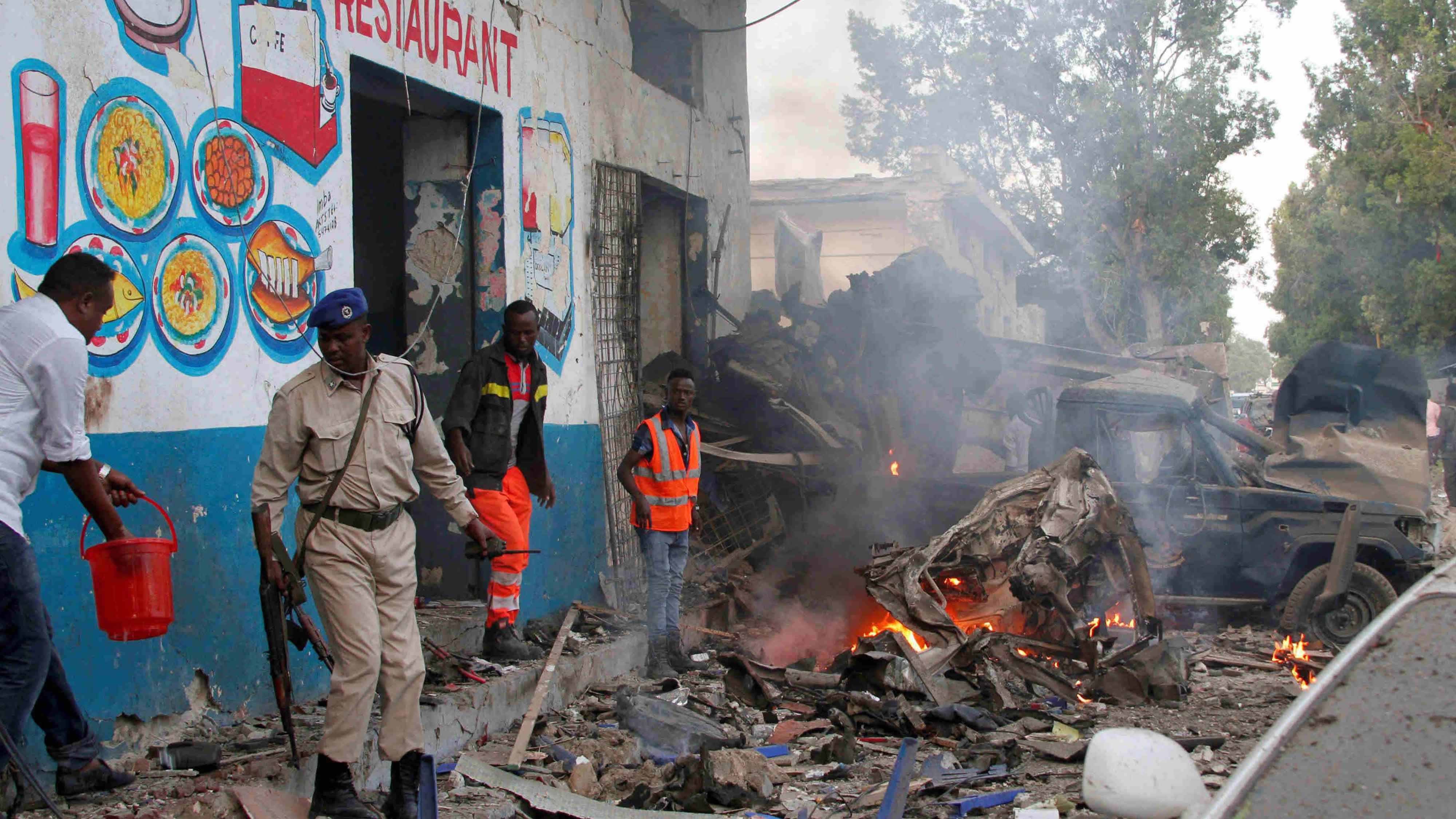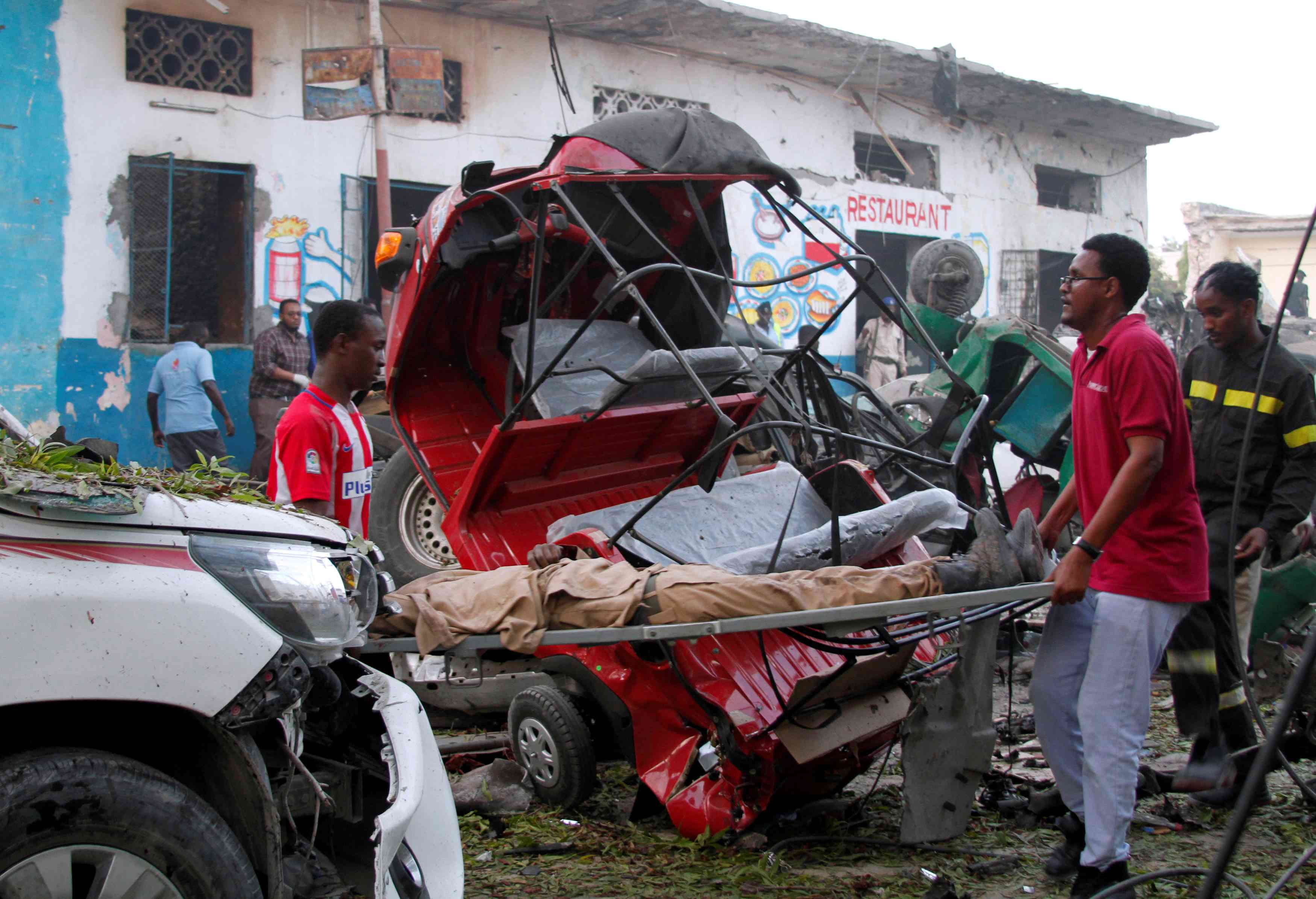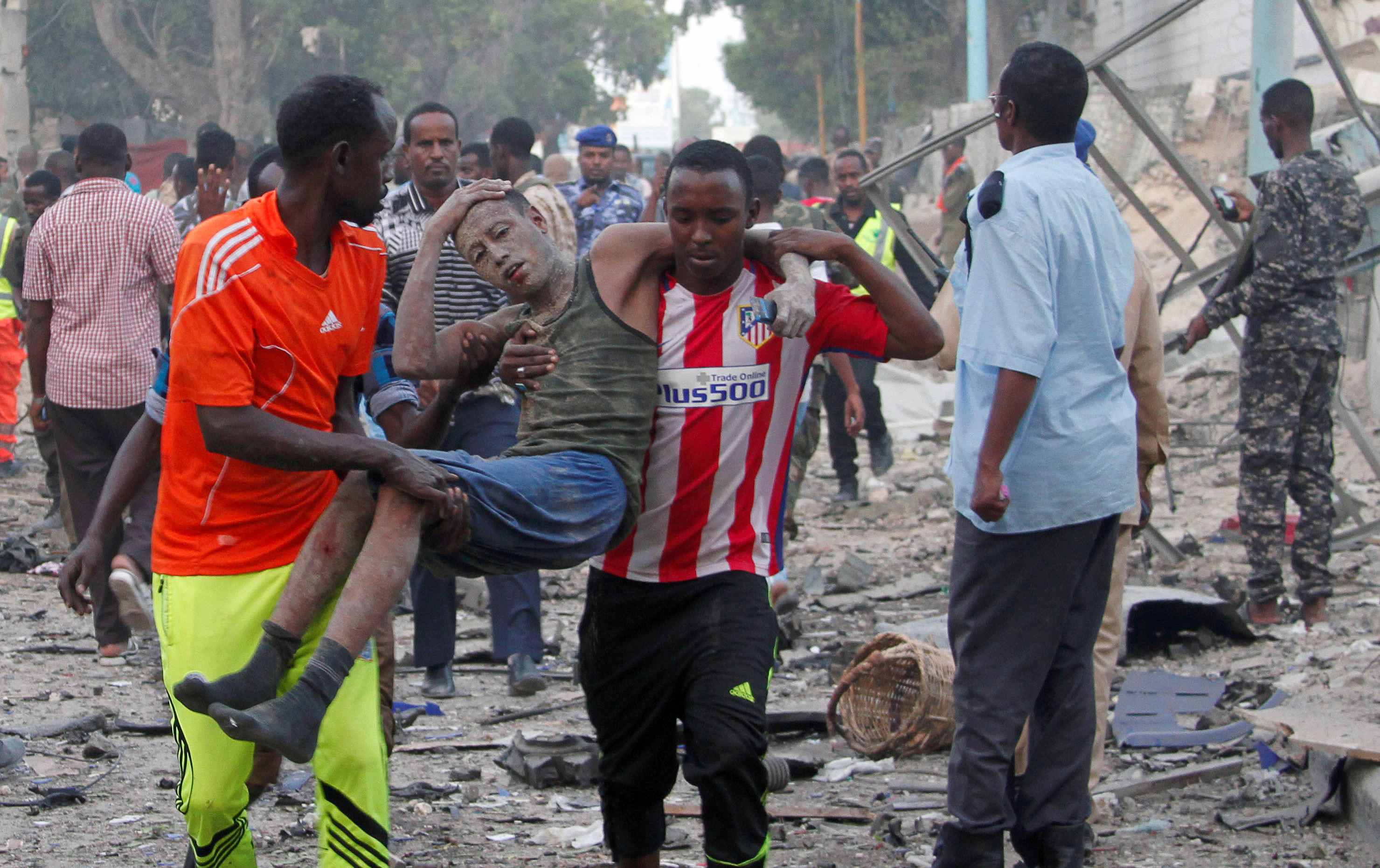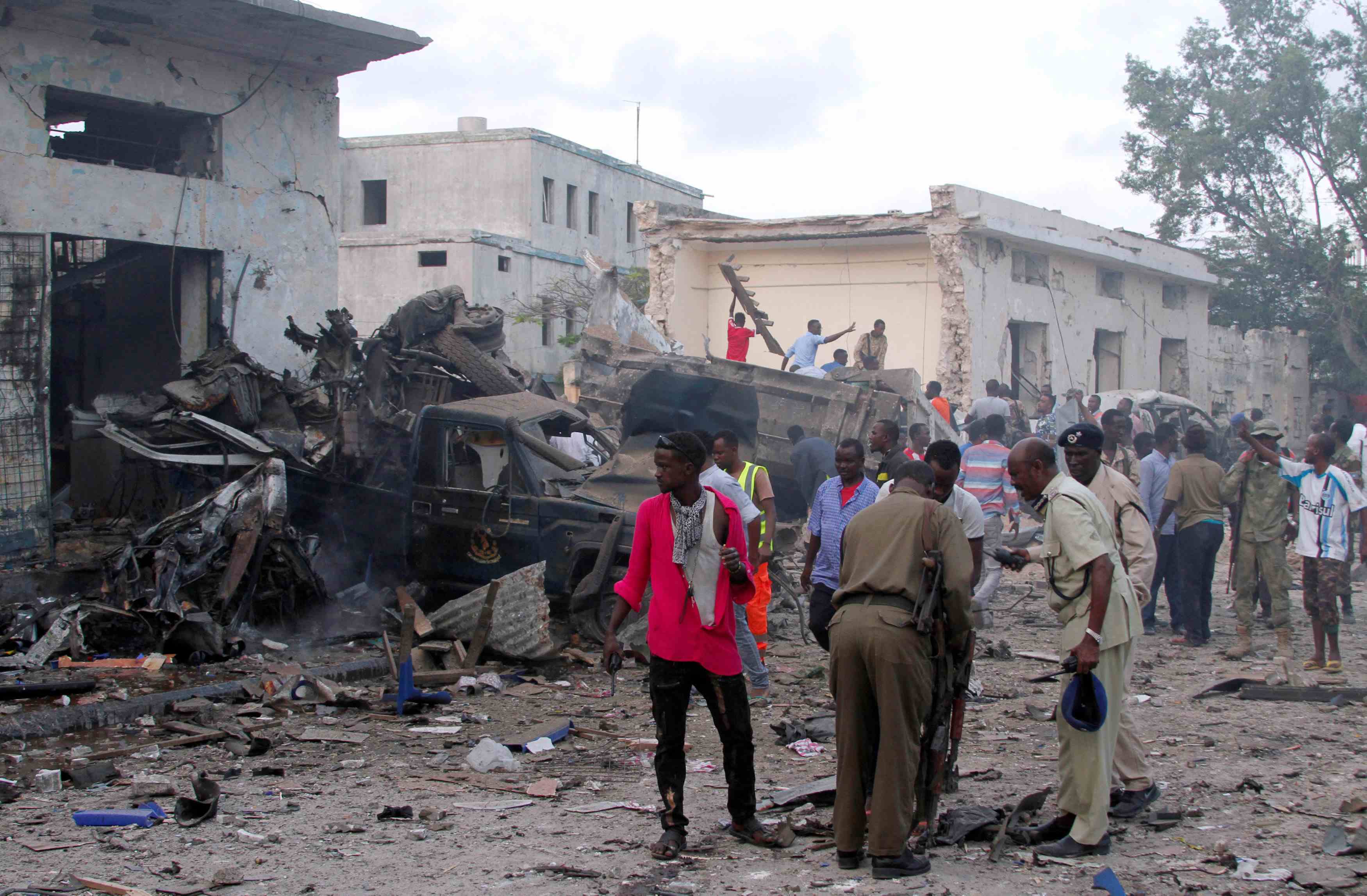
World
22:31, 28-Oct-2017
At least 29 killed in Somalia twin car bomb attacks, al-Shabaab claims responsibility
CGTN

At least 29 people were killed and over 30 others injured after extremist group al-Shabaab launched two deadly car bomb attacks in Somalia’s capital Mogadishu on Saturday.
The first blast reportedly targeted a busy Nasahablod II Hotel in Hamarweyne district in Mogadishu and a cloud of smoke was seen rising above the scene, according to Xinhua News Agency.
Sputnik cited a journalist, saying that gunfire followed the explosion and an evacuation of the wounded people was ongoing.
Nearly half an hour later, a second car bomb exploded near former parliament house in Mogadishu.

Civilians carry an injured man from a suicide car bomb explosion at the gate of Naso Hablod Two Hotel in Mogadishu, Somalia October 28, 2017. /Reuters Photo
Civilians carry an injured man from a suicide car bomb explosion at the gate of Naso Hablod Two Hotel in Mogadishu, Somalia October 28, 2017. /Reuters Photo
The Associated Press interviewed Capt. Mohamed Hussein by telephone, who said more than 20 people, including government officials, were thought to be trapped as security forces battled extremists holed up on the top floor of the Nasa-Hablod hotel, close to the presidential palace. Two of the five attackers were killed on the first floor, Hussein added. The others hurled grenades and cut off the building’s electricity as night fell.
A senior Somali police colonel and a former lawmaker were among the dead, Hussein said.
Extremist group al-Shabaab claimed responsibility for the attacks.
"We targeted ministers and security officials who were
inside the hotel. We are fighting inside," said Abdiasis Abu Musab, the group's military operations spokesman, according to Reuters.
inside the hotel. We are fighting inside," said Abdiasis Abu Musab, the group's military operations spokesman, according to Reuters.

Civilians assist a man, injured from a suicide car bomb explosion, at the gate of Naso Hablod Two Hotel in Hamarweyne district of Mogadishu, Somalia October 28, 2017. /Reuters Photo
Civilians assist a man, injured from a suicide car bomb explosion, at the gate of Naso Hablod Two Hotel in Hamarweyne district of Mogadishu, Somalia October 28, 2017. /Reuters Photo
Mohamed Dek Haji said he survived the bombing as he walked beside a parked car that was largely destroyed by the explosion. He said he saw at least three armed men in military uniforms running toward the hotel after the suicide bombing at its gate.
"I think they were al-Shabab fighters who were trying to storm the hotel," he said, lying on a hospital bed. He suffered small injuries on his shoulder and skull from flying glass.
Witnesses in some previous attacks have said al-Shabab fighters disguised themselves by wearing military uniforms.
Al-Shabab often targets high-profile areas of Mogadishu. It has not commented on the massive attack two weeks ago; experts have said the death toll was so high that the group hesitated to further anger Somali citizens as it pursues its insurgency.

Civilians assist a man, injured from a suicide car bomb explosion, at the gate of Naso Hablod Two Hotel in Hamarweyne district of Mogadishu, Somalia October 28, 2017.
Civilians assist a man, injured from a suicide car bomb explosion, at the gate of Naso Hablod Two Hotel in Hamarweyne district of Mogadishu, Somalia October 28, 2017.
Saturday's attacks came after a massive explosion earlier this month on October 14. The attack had left more than 300 people dead, making it one of the deadliest in the country.
Since the blast two weeks ago, President Mohamed Abdullahi Mohamed has visited regional countries to seek more support for the fight against the extremist group, vowing a "state of war." He also faces the challenge of pulling together regional powers inside his long-fractured country, where the federal government is only now trying to assert itself beyond Mogadishu and other major cities.
A 22,000-strong multinational African Union force in Somalia is expected to withdraw its forces and hand over the country’s security to the Somali military by the end of 2020. US military officials and others in recent months have expressed concern that Somali forces are not yet ready.
The US military also has stepped up military efforts against al-Shabaab this year in Somalia, carrying out nearly 20 drone strikes, as the global war on extremism moves deeper into the African continent.
8265km

SITEMAP
Copyright © 2018 CGTN. Beijing ICP prepared NO.16065310-3
Copyright © 2018 CGTN. Beijing ICP prepared NO.16065310-3